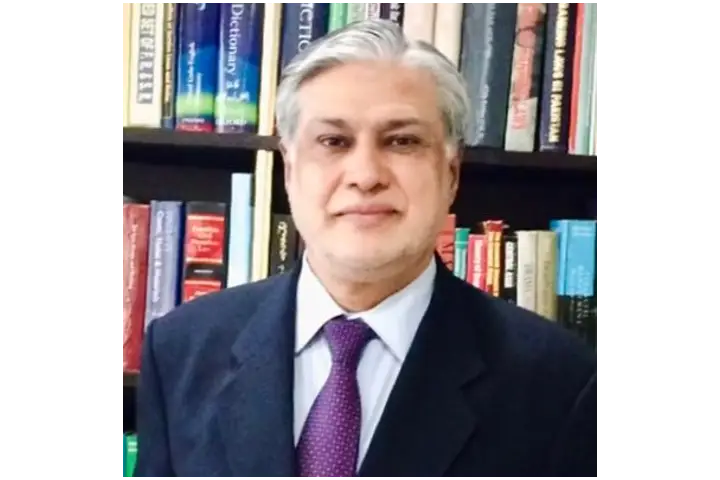

Pakistan's Finance Minister Ishaq Dar: Not in a happy spot
Amid rising debt levels in Pakistan, it seems that the country’s Finance Minister Ishaq Dar has only one key task —to be able to secure further loans or resume the International Monetary Fund’s $6.5 billion financial assistance package. From April 2023 to June 2026, Pakistan would be required to repay $77.5 billion in external debt, according to the United States Institute of Peace (USIP). This itself is just a fraction of the total external debt and liabilities to the tune of $126.3 billion.
It is not just Dar. Even his predecessor Miftah Ismail, who was in office for a short tenure, too focused only on one key mission–resumption of the IMF loan.
“The state at which the country is now, it seems the finance ministers are there only to monitor and manage loans…their time and energy are spent only on managing lenders,” an analyst with a ratings agency told India Narrative. And their achievements are also measured on the basis of their ability to secure further loans.
Pakistan has received financial assistance from various sources including multinational lenders, the Paris Club besides the bilateral lenders that include China and other countries. Apart from a large chunk of the loan which the country has got at a concessional rate of about 1 per cent with repayment period spanning up to 30 years, the country has also borrowed sizeable amounts with short and medium term repayment tenure. This is what is troubling the South Asian nation.
In June Pakistan will have to repay $1 billion with the maturity of the Chinese State Administration of Foreign Exchange (SAFE) loan and another $1.4 billion Chinese commercial loan would also be due. “Pakistani authorities hope to convince the Chinese to refinance and rollover both debts, something the Chinese government and commercial banks have done in the past,” USIP said.
The country’s foreign exchange reserves are around $4 billion –barely enough to cover imports for a month. And now the IMF has slashed Pakistan’s economic growth projection from the earlier 2 per cent to 0.5 per cent for the current financial year. Amid depleting foreign exchange reserves, the slowdown in inflow of remittances has also become a cause for concern. The restrictions on imports have led to severe shortage of food and other essential items leading to food riots even at a time when the nation is observing the one-month Ramzan period.
Also read: Holding a Rs 50 billion elections will further sink Pakistan
The Indian Chamber of Commerce (ICC) on Thursday hosted the 14th India Minerals and Metals…
Prime Minister Narendra Modi departed from Ghana's capital city of Accra after concluding the first…
India and Australia have undertaken the first science and technology project arrangement to improve the…
The eighth edition of India-France Joint Military Exercise Shakti-VIII concluded on Thursday at Camp Larzac,…
As Prime Minister Narendra Modi has been conferred the national honour of Ghana, Officer of…
External Affairs Minister S Jaishankar held a meeting with FBI Director Kash Patel in Washington…